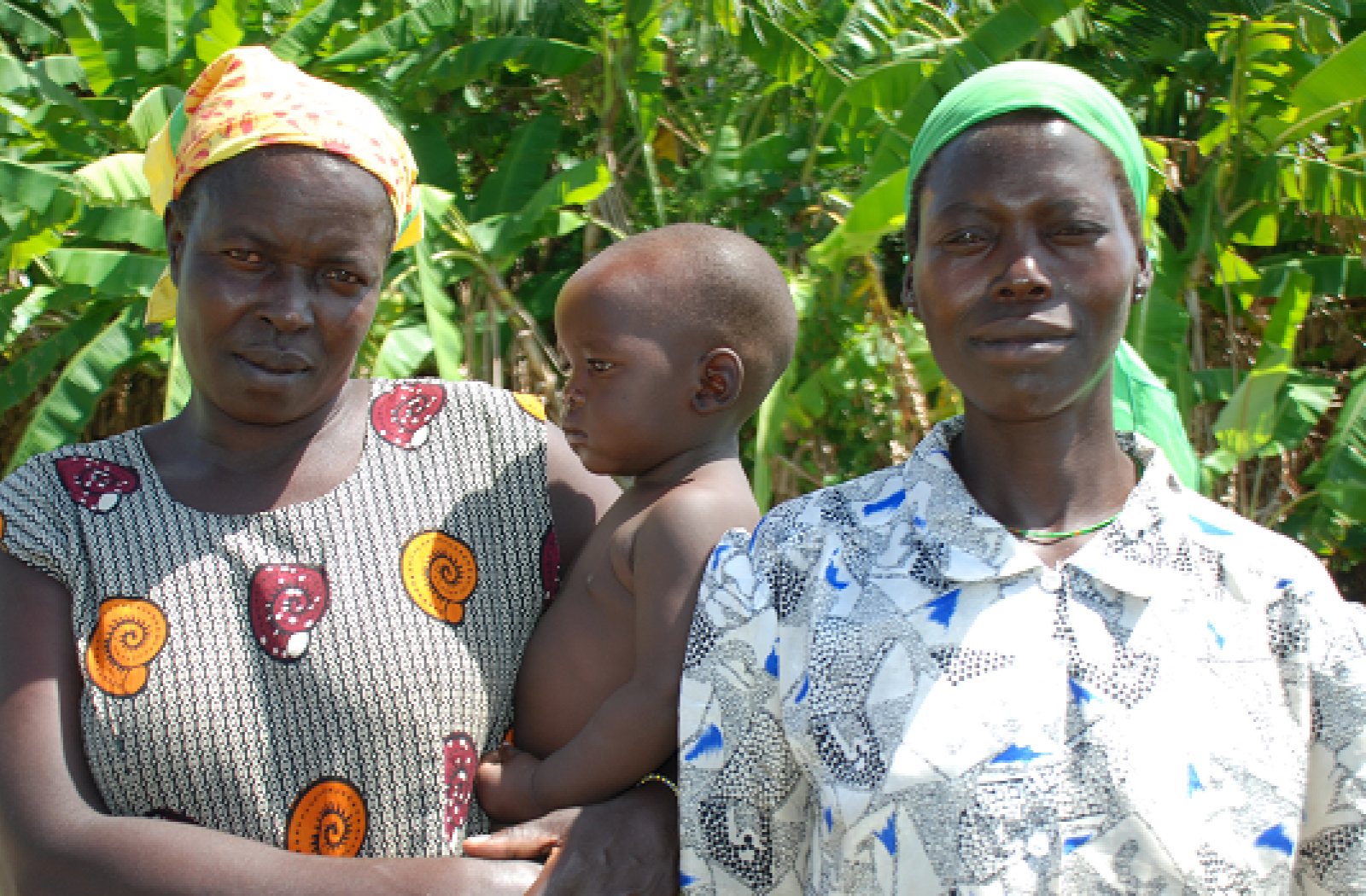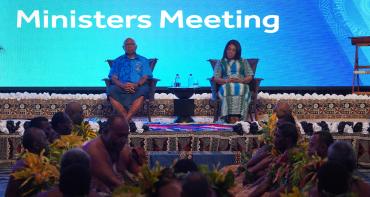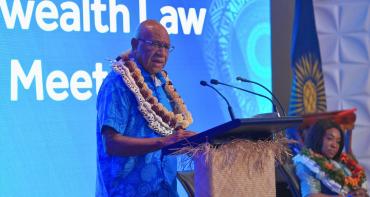The first instinct of women planning to escape violence is to reach the police and justice system for protection. As they take the brave step to report, often they are met with a failing system.

This blog is part of the Commonwealth’s ‘16 Days of Actions’ series, designed to showcase multi-disciplinary national solutions in addressing violence against women and girls. These proven solutions build on the collective experience of the 54 member countries – representing one-third of humanity – which can be replicated elsewhere to create a safer world for every woman and girl. Read the full series here.
The first instinct of women planning to escape violence is to reach the police and justice system for protection. As they take the brave step to report, often they are met with a failing system.
Over and over, women have explained how disturbing it can be to navigate a system, infected by stereotypes, biased police, overworked courts, hegemonic masculinity, lengthy court proceedings and legal loopholes. Consider if the court hears the case, victims are often reduced to witnesses, intimidated by their abusers and discredited by defence. In case the perpetrator is not convicted, victims become extremely vulnerable to experiencing violence again, either after the hearing or later in their lives. We often hear their stories when there is a tragic outcome.
Such culture, directly or indirectly, traps victims in a vicious cycle of re-victimisation, which depresses their confidence in the system and discourages them from reporting their abusers. So it comes as no surprise that a majority of violence against women and girls goes unreported due to impunity, fear and shame.
At the same time, while the increased public awareness is encouraging more victims to report violence, the prosecution rate remains low because the legal process is lengthy, and courts are overburdened.
Certainly, with decades of reforms and activism, many survivors have found closure through the system, but much more still needs to be done across the world to ensure the path to freedom remains free from harm.
Access to justice for all
Guided by this principle and with a focus on ending violence against women and girls as one of the Commonwealth’s four gender priorities, the Secretariat rolled out a new initiative in 2018 to strengthen the management of vulnerable witnesses in the legal system in member countries and guarantee access to justice for every Commonwealth citizen. We immediately received a request from Uganda’s Director of Public Prosecutions to benefit from this initiative.
The Secretariat partnered with the Rule of Law Expertise UK to hold a national roundtable on improving the management of vulnerable witnesses, who are most often victims themselves, in cases of gender-based violence. Ahead of the roundtable, the Secretariat reviewed the country’s existing policy and procedures which guide institutions and service providers to deal with vulnerable witnesses. The findings were deliberated at the roundtable, which was attended by delegates from the government, international organisations and the legal sector.
Interventions for progress
Together, delegates agreed and recommended four key interventions to Uganda on protecting vulnerable witnesses. The first intervention urges Uganda to adopt a legal definition of protected and vulnerable persons within its local context, enact the Witness Protection Bill and set up a mechanism and operating procedures for legal representation and reparation of victims. In addition, the country should establish a witness protection agency and create a one-stop centre to streamline services.
The second intervention focuses on building the capacity of key actors to protect witnesses and reduce their vulnerability throughout the legal process from courtroom and videos conference facilities to shelters.
The third intervention emphasises raising public awareness to sensitise community members to respect and protect vulnerable witnesses. The final recommendation outlines the need to train the staff, from case handlers and journalists to judicial officers, to support and protect the witness in line with the protocols.
Empowering vulnerable women
In addition to proposing these interventions to Uganda, the Secretariat has incorporated the recommendations into its ongoing work for the 54 member countries. We are hopeful that the four-point proposal will inform the implementation of the Commonwealth Declaration on Equal Access to Justice, which our law ministers adopted in Sri Lanka last year.
At their meeting, Commonwealth law ministers assessed the legal needs in their countries and pledged to utilise people-friendly approaches to overcome the identified gaps. They have put forward the ‘access to justice for vulnerable people’ agenda for the leaders’ discussion at the 2021 Commonwealth Heads of Government Meeting. A message from the leaders in support of access to justice for vulnerable people will be go a long way in promoting and protecting the interests of victims of gender-based violence.
No one should continue to suffer or live with a belief that reaching out for help may not lead to freedom. Countries across the world should take greater responsibility and accountability of the justice and law enforcement systems to ensure the calls for help do not turn into outbreaks of more harm.
A gender-sensitive system is not only critical to protecting victims but to holding abusers accountable to prevent them from re-offending or posing a further risk. The trust of victims in the system will encourage many others to speak up and will make potential offenders fearful of criminal prosecution – ultimately flattening the curve of violence in our homes and communities.
This blog is part of the Commonwealth’s ‘16 Days of Actions’ series, designed to showcase multi-disciplinary national solutions in addressing violence against women and girls. These proven solutions build on the collective experience of the 54 member countries – representing one-third of humanity – which can be replicated elsewhere to create a safer world for every woman and girl. Read the full series here.
The ‘16 Days of Actions’ blog series is part of the Commonwealth Says NO MORE campaign. Read the full series here, learn more about the Commonwealth’s work on ending violence against women and girls here – and join in the conversation on social media by using #CommonwealthSaysNOMORE.



